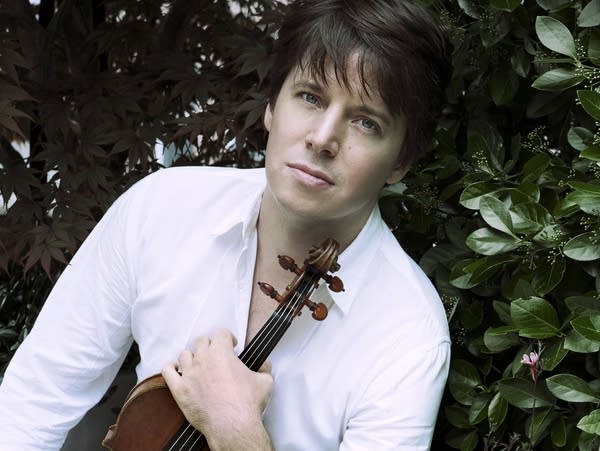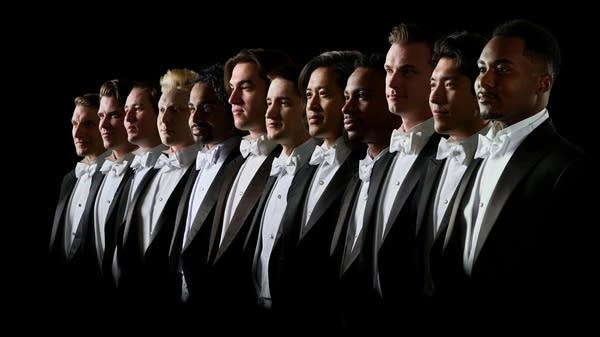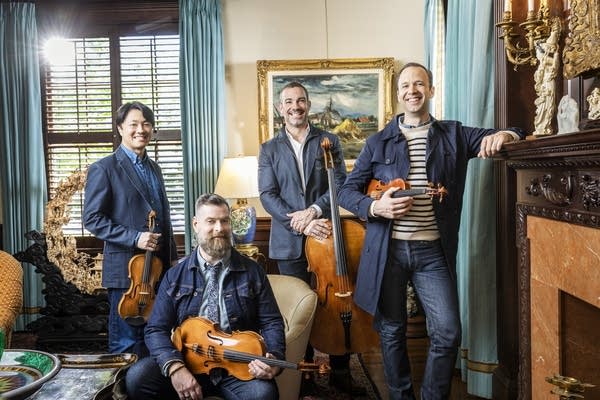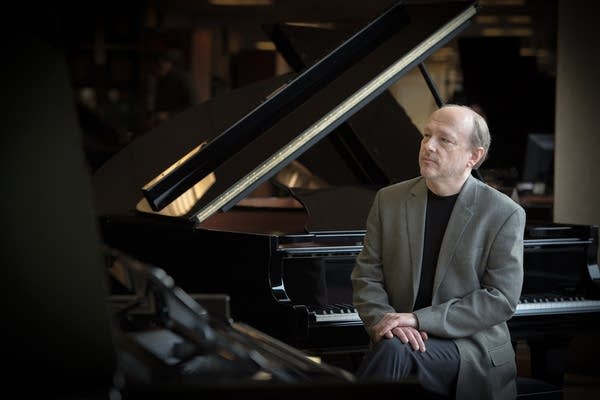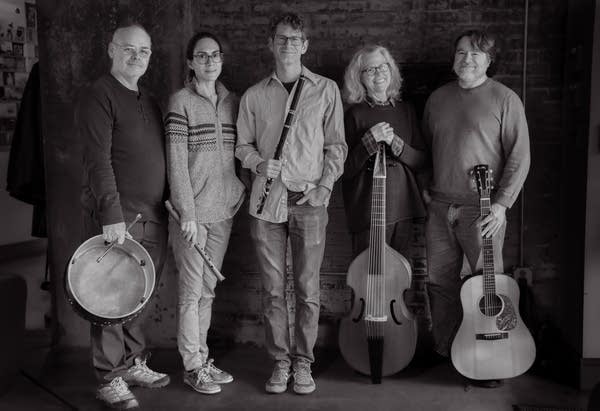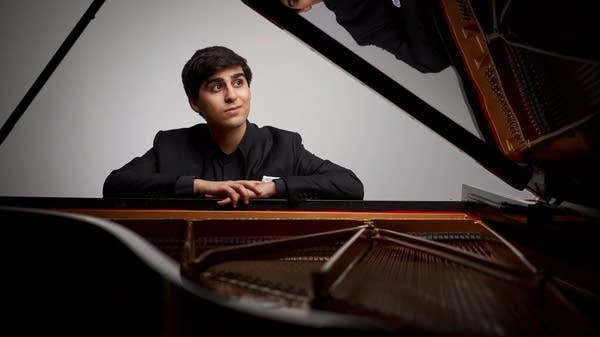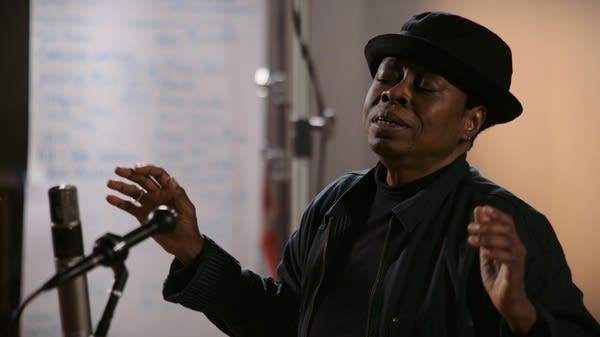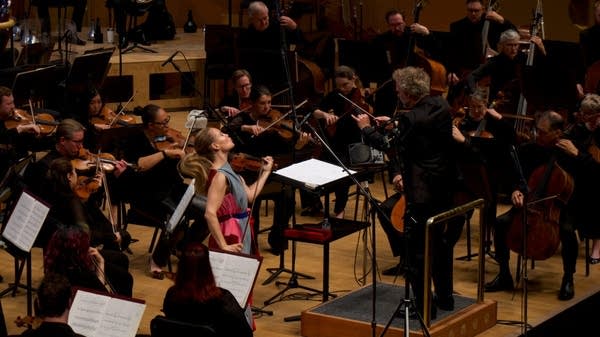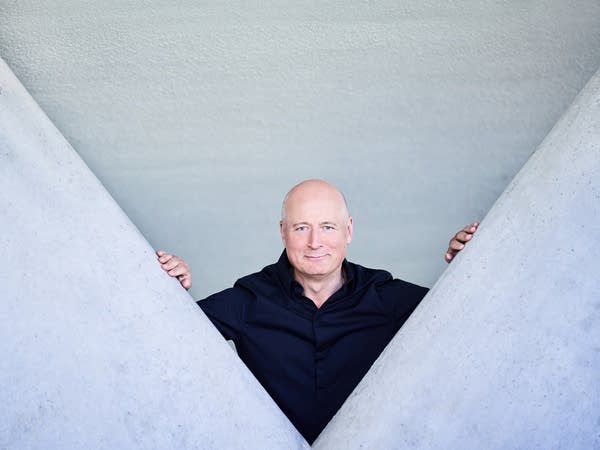Joshua Bell and the Academy of St. Martin in the Fields: Scottish Fantasy (Sony)
"Some people like to say about Bruch, in general, because it's popular they think, 'Oh, well, it's probably not as deep a piece as the Brahms or the Beethoven,' and that's hogwash. It's incredibly deep and meaningful music."
That's why violinist Joshua Bell decided to record Max Bruch's Violin Concerto a second time with the Academy of St. Martin in the Fields. He's paired it with a piece he's never recorded before, Bruch's Scottish Fantasy.
Now what's especially fun is the fact that you first recorded this when you were 18 with Sir Neville Marriner and the Academy of St. Martin in the Fields. Now you're switching positions: you are the conductor as well as the soloist. Tell me how that's given you a new perspective.
"You know after so many years of playing the piece with so many different conductors — I mean hundreds, really with this piece — you learn how to tell the story in different ways over the years. And now when I'm conducting it, as well, and I don't have to play the diplomatic game with the conductor there and try to choose my battles, I can really work on all the little details with the orchestra that I've always wanted and my whole wishlist."
You just mentioned a wish list of things that you've always wanted to emphasize in this work. Can you give me a couple of examples and where we might hear those?

"For instance, the opening of the the third movement of the Violin Concerto, just from the beginning of the viola entrance to where the solo violin comes in. There are so many little details — a little crescendo, the subito piano; some things are often ignored by conductors. Sometimes they don't strive for the dynamic that I want, but there's a way to build that before I come in so that it just really sets up the perfect entrance.
"And often I have to find a way to get the conductor to do it the way I want. I've been accused of conducting alongside the conductor, which is not a good thing and I don't recommend it. But in this case, being able to do it myself is really wonderful."
How would you describe your interpretation of the Bruch Violin Concerto on this new recording? Was there anything new that you discovered that you wanted to bring to the forefront?
"Most of it is reading between the lines and finding the right character, the right sort of atmosphere for the central movement of the concerto, which is really the jewel. The slow movement of the Bruch G-minor concerto is just one of the greatest things written for the violin."
This is your first recording of Bruch's Scottish fantasy. Why was now the right time to record this piece?
"I actually came to the Scottish Fantasy later in life, as far as performing it myself. I grew up listening to it, always loved it and never found a time to learn it and play it. And then I started performing it, and I just love this piece.
"I grew up listening to the Heifetz recording as a kid, and even when I started to learn it myself, I felt I knew every note inside out before I even started learning it. Definitely, I feel an affinity to this piece, the Scottish Fantasy."
He wrote such beautiful melodies that just stick in your mind and take you places.
"Yeah, in the Scottish Fantasy, for instance, even the funerial opening from the winds and brass in this crazy key of E-flat minor — it's very dark. And the violin enters with this sustained note that emerges out of the fog. I can't think of a more magical opening of any piece for the violin."
The enchanting music of Max Bruch, performed and conducted by Joshua Bell on his new recording, Scottish Fantasy. Download the extended podcast to hear the full interview.
To hear the rest of my conversation, click on the extended interview above, or download the extended podcast on iTunes or wherever you get your podcasts.
Resources
Scottish Fantasy (Amazon)
Love the music?
Show your support by making a gift to YourClassical.
Each day, we’re here for you with thoughtful streams that set the tone for your day – not to mention the stories and programs that inspire you to new discovery and help you explore the music you love.
YourClassical is available for free, because we are listener-supported public media. Take a moment to make your gift today.
Your Donation
About New Classical Tracks®
Host Julie Amacher provides an in-depth exploration of a new classical music release each week.
Subscribe on Apple Podcasts, TuneIn, Radio Public, or RSS.
